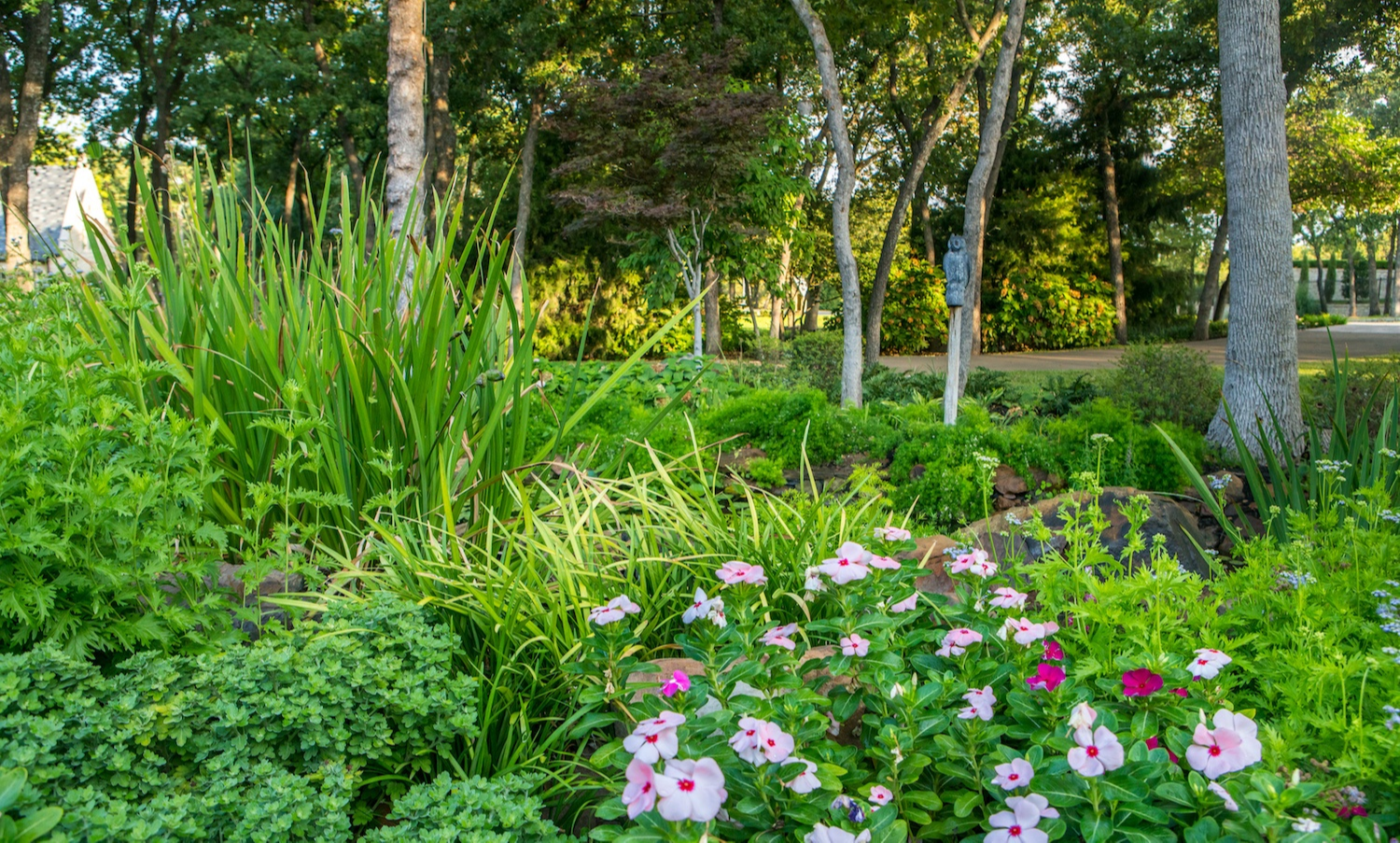
Your flower beds are a beautiful part of your North Texas landscaping. They add color, texture, and overall interest to your landscape.
But in addition to the flowers and plants that you have installed within those beds, you also want to think about flower bed edging that will help accentuate your design and provide even more aesthetic appeal to the overall design.
While the border for flower beds is sometimes a detail that gets overlooked, it can make a big difference! That’s why we are talking about some flower bed edging ideas that you might want to consider.
You deserve to get the most possible value and appeal out of your property.
Before we dive into some of those flower bed edging ideas let’s talk about why edging matters.
Yes, it absolutely does contribute to the appeal of the flower bed. It is a finishing touch that creates a nice delineation between your lawn and your landscaped areas.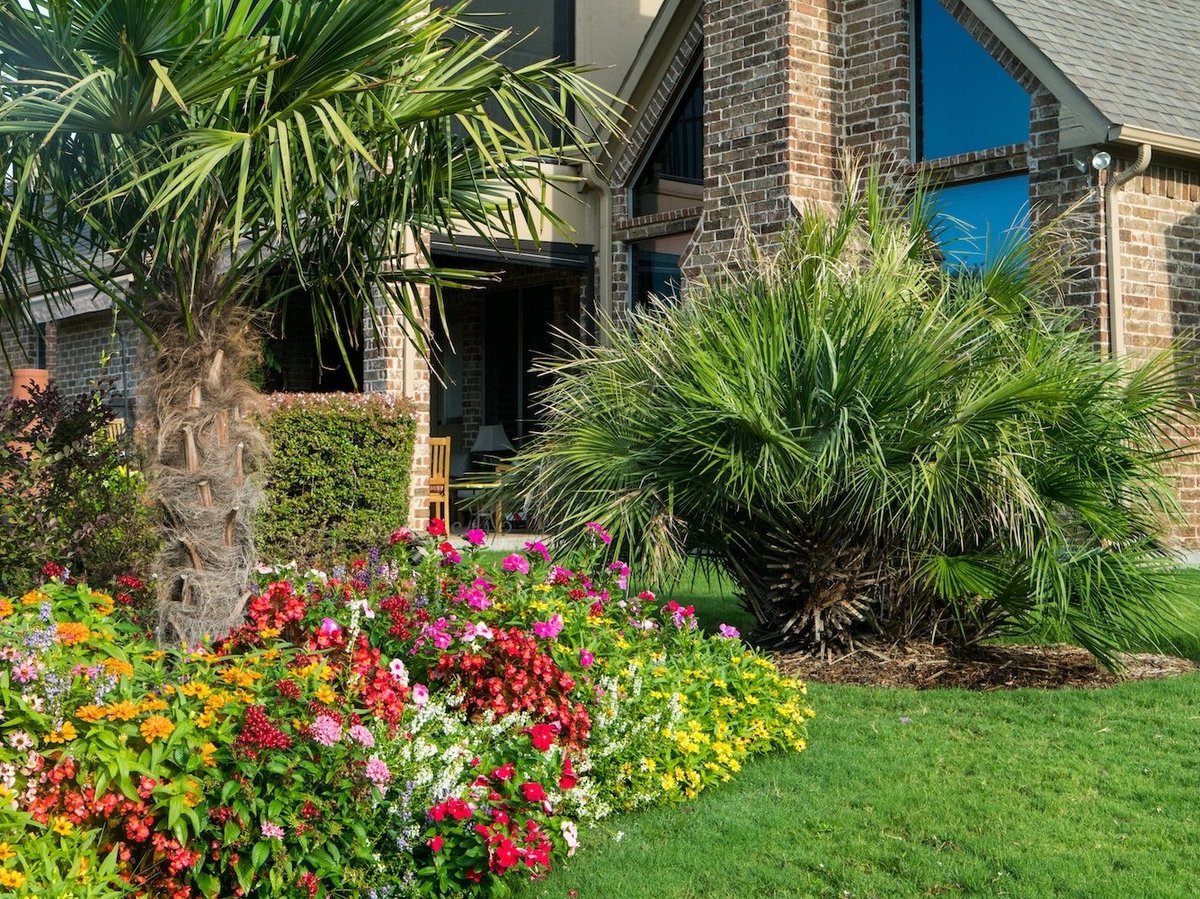
But there is also some functional benefit to adding a border for flower beds.
The big one is that it assists in preventing mulch from washing out into the lawn. While it’s not foolproof if there’s a heavy rainfall or a lot of wind, the idea is that an edge will help to hold mulch in place. This is also true for tree rings.
Another benefit is that edging can also help create a barrier that makes it a little more difficult for lawn weeds to creep into the flower beds (and vice versa). Again, some opportunistic weeds may still find a way, but edging will limit this.
As far as how to edge a flower bed, there are two primary paths you can take.
You could create a natural edge by cutting into the ground around the border of the flower bed with an edging shovel. Or, you could use an edging material to create your flower bed edging.
We’ll explore all of the possibilities.
Many people like the look of a natural edge. It does add a nice finishing touch and has a clean look.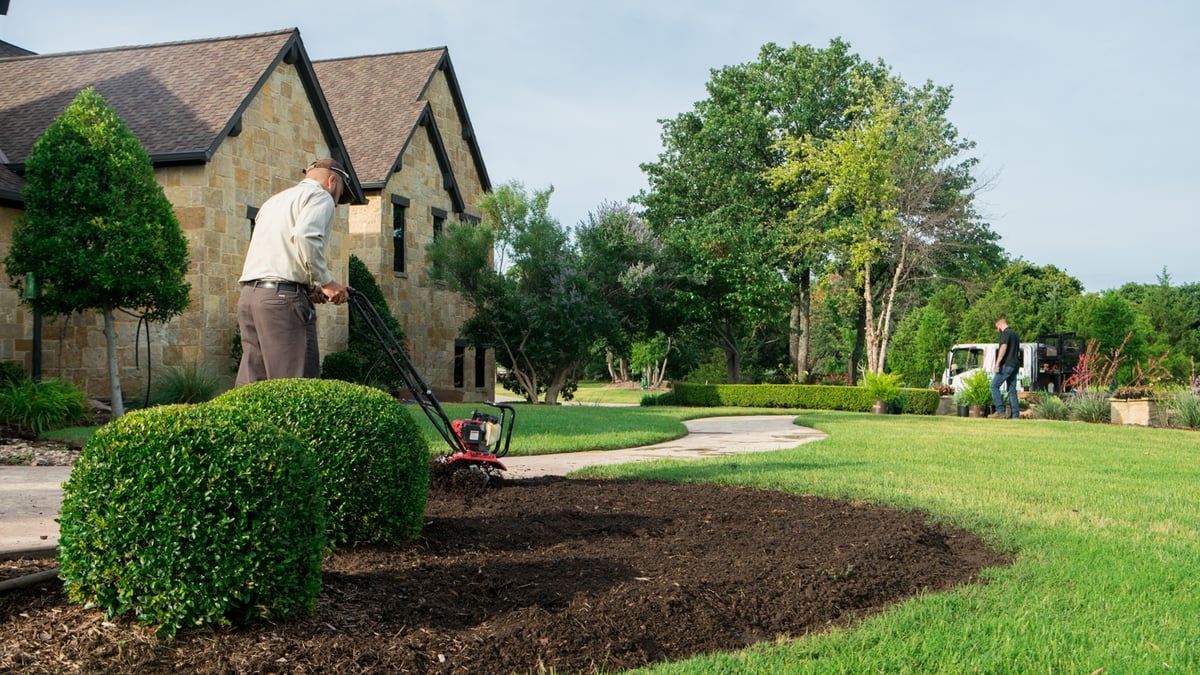
One downside to natural edging is that it does need to be maintained over time. The edge will need to be periodically re-cut to restore the look.
Another option is edging with stone. Stone can make an attractive border for flower beds that also helps to hold the edge and keep mulch in place.
Homeowners often like that stone adds some appeal of its own to the landscape design, making it a nice addition. We use various types of stone including boulders, chop stone, and others.
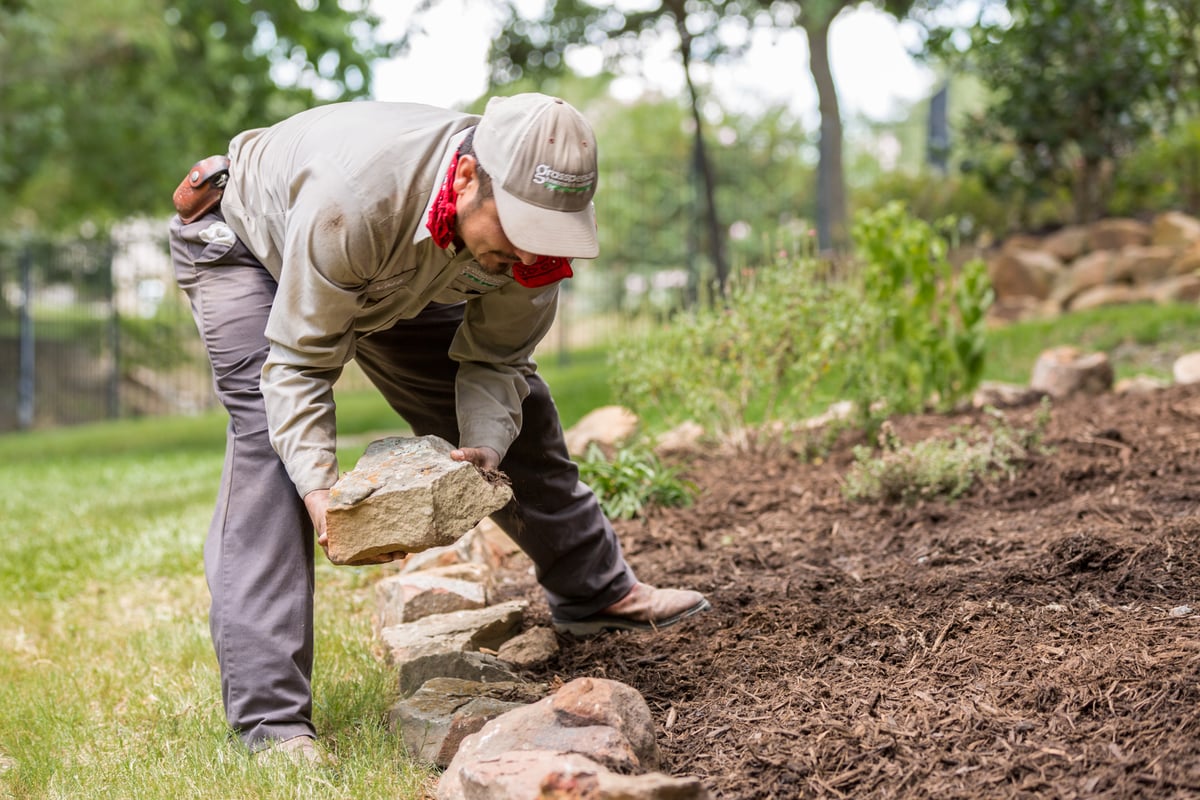
It’s important to note that edging with stone is not as simple as just placing rock around the border of your beds. Like a retaining wall, edging stone needs a proper footing so that it can remain in place for the long haul.
If this is ignored, the stones will start to sink, fall over, or become uneven.
Another option is steel edging, which also comes in various colors and can be an aesthetic addition of its own.
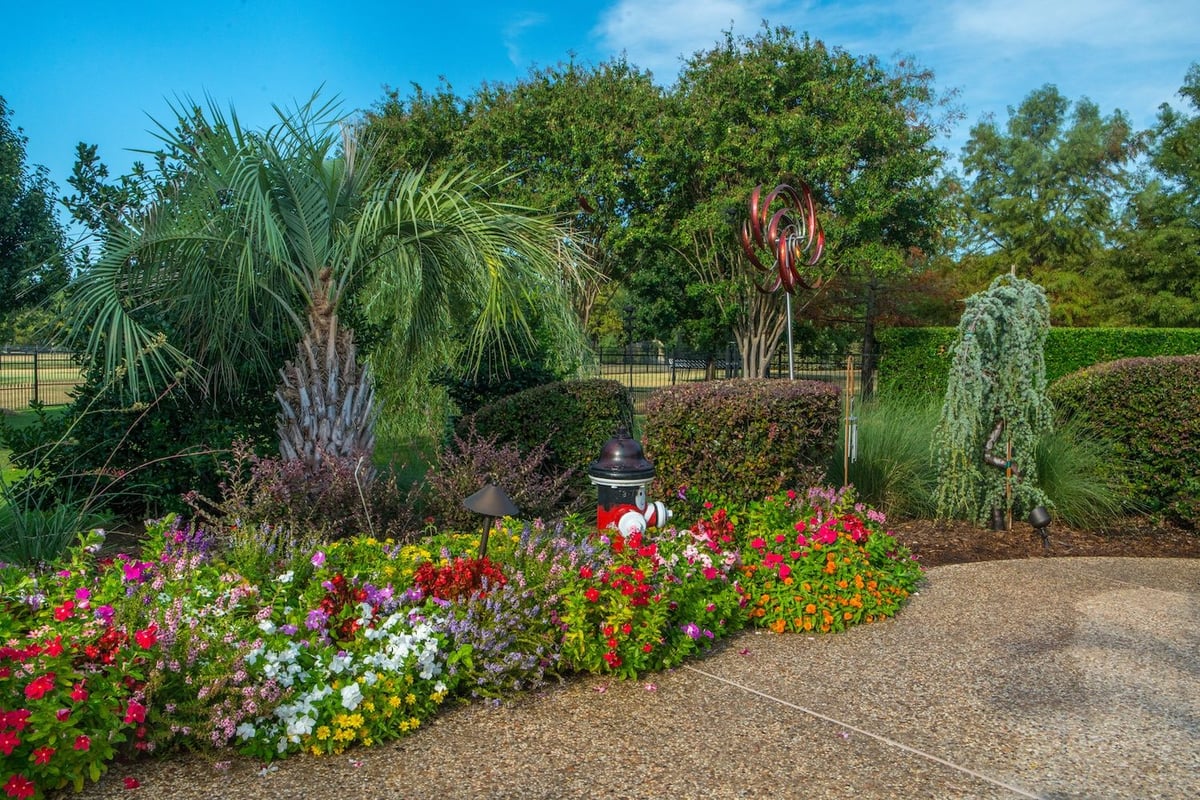
This is a superior product to the plastic edging that you’ve likely seen sold in stores or maybe even used yourself. As you likely know, plastic edging can easily pop up out of the ground and doesn’t always stay in place.
But steel edging is much sturdier and will stay put. It’s a great way to define flower beds and keep mulch where it’s meant to be.
An additional flower bed edging product is flexible synthetic board, otherwise known as bender board, which is easy to work with, durable, and blends in well with the landscaping.
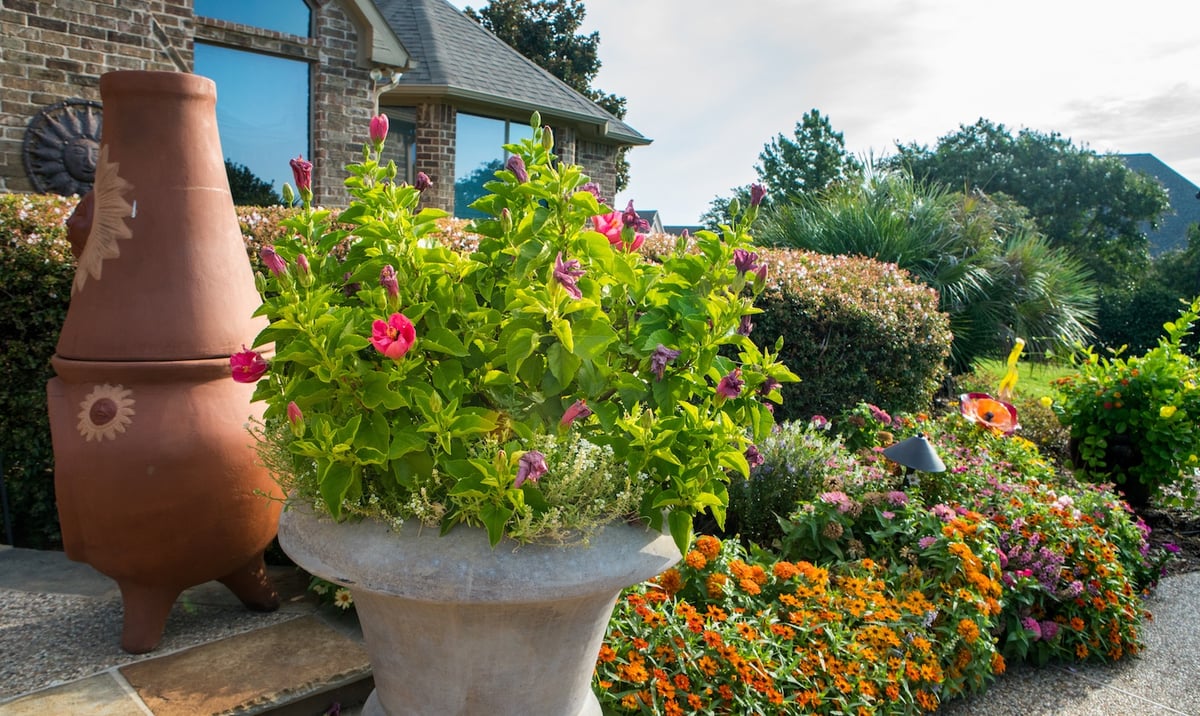
We usually use this in a brown or a black color so that it seamlessly blends with the mulch.
As with any other landscape project, you want to make sure that it’s done well. That’s why it’s important to partner with a professional to create the perfect border for flower beds.
While you might have considered tackling a project like this yourself, when you choose to work with a pro, you don’t have to use your hard-earned free time working in the yard.
And, you’ll gain confidence that you’re going to get the best possible results.
Of course, that’s all contingent on choosing the right pro to work with. As we mentioned before, sometimes this is a detail that even landscaping companies skip. But it really can make a big difference in the overall look of your beds.
Whether you choose an edging material like steel edging, synthetic board, or stone—or you want a natural cut edge that will take work to maintain—you want to make sure your landscape beds continue to look their best for years to come.
Ready to have a truly impressive Northern Texas yard? Get in touch with us so we can talk about some enhancements that might work best for your unique property.
These Stories on Landscape